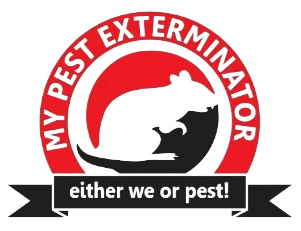Explore Our Services
Our Service's
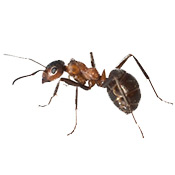
Ants
Ants: Ants will eat practically any kind of food, but are especially attracted to sweets. Ant identification is relatively simple due to their three distinct body regions: head, thorax and abdomen, as well as antennae. Despite similar construction, ants vary in overall appearance. Small or large ants and brown or black ants are common nicknames for different species.
What do we do:
1) Seal cracks and crevices around the home, especially in places where utilities enter.
2) Dispose of garbage regularly and use trash cans with a sealed lid.
3) Promptly clean up food and drink spills.
4) Store sweets such as honey and sugar in closed containers.
5) The best way: To Contact us.
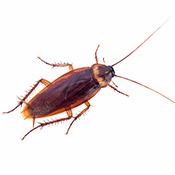
Cockroaches
Cockroaches: Cockroaches, what attracts them is food debris. When dealing with these scavengers, the number one thing to do is remove their access to food. Go through your pantries and cupboards to make sure that there’s no food or crumbs out in the open and keep everything bone dry — no water.
What do we do:
1) Keep your kitchen and bathroom clean and dry.
2) Empty any pet food containers.
3) Do not leave trash out.
4) Keep food sealed.
5) The best way: To Contact us.
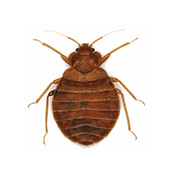
BedBugs
Bedbugs: Bedbugs usually get into your home from another place that’s infested with them. If you live in an apartment or condominium, they can travel from another unit in your building. They might hitch a ride on used upholstered furniture. Or you could carry them in on luggage or a purse that you set down in a place that has bedbugs.
They’re tiny and good at hiding during the day, so it’s easy for them to get into your home without you knowing it.
What do we do:
1) Wash your bedding, curtains and clothing.
2) Scrub your mattresses.
3) Put tightly woven, zipper covers.
4) Repair cracks.
5) The best way: To Contact us.
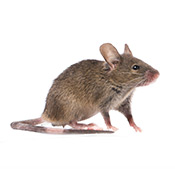
Rodents (Rats/Mice)
Rodents (Rats/Mice): There are two main things that can attract mice and rats to your house – food and shelter. If you don’t tidy up properly and there’s food waste on the floor or surfaces, rodents are going to love it! Rats and mice also need shelter, particularly during winter to avoid the worst of the cold.
What do we do:
1) Do not leave garbage box open, as it will attract them.
2) Seal the entry points to the house (windows, doors, cracks, pipes etc).
3) Keep your food in a sealed box.
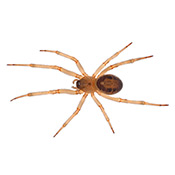
Spiders
Spiders: Some web-building spiders can form memories of the prey they catch, and the rare the ability has now been documented in black widows, who can retain information about their prey’s size and the location where it was ensnared in the spider’s web.
What do we do:
1) Routing cleaning.
2) Vacuum the place.
3) Remove spider webs.
4) The best way: To Contact Us.
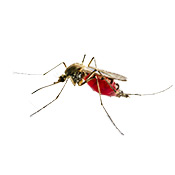
Mosquitoes
Mosquitoes: Many homeowners erroneously believe that all pest management professionals do is spray chemicals to treat their homes. This is simply not true anymore. Many pest management professionals today use an Integrated Pest Management or IPM approach. IPM controls pests by getting rid of the three things they need to survive: food, shelter and water.
What do we do:
1) Eliminate or reduce mosquito breeding sites by replacing all standing water.
2) Remove unneeded vegetation or trash.
3) Seal screen windows, doors, and other openings.
4) Avoid going outdoors when and where mosquitoes are most active.
5) The best way: To Contact Us.
Safe and Rational Use of Pesticides
When you use pesticides, the immediate vicinity may also be affected by toxic substance. That is why the federal government and the provincial government have passed legislation to control the use and sale of such products. Our experts and certified technicians (exterminators) make sure that they use them safely and effectively. Using these pesticides properly minimizes the risk to the applicator, consumer, bystanders and the environment.
Control of Rodents
Rodenticides are pesticides which kill rodent pests such as mice and rats. Rodents that eat treated bait die from internal bleeding after 3-4 days. Based on our past and wide experience we have to think ahead of these creates and change our formula or pesticides on regular basis.
Formulation
While using these formulations we have to analysis the most effective, safe and easier way and with less adverse effect on environment and human beings. Broadly these formulations can be used as:
1) Granulars.
2) Dusts.
3) Baits.
4) Tablets.
5) Pellets.
6) Pressurized Products.
Preventive attitude in the use of pesticides
Preventive attitude and preventive planning are the most important part of any project. We do under all the steps when using a pesticide.
1)Which method to use.
2) Which chemical to use.
3)Transport and handling.
4) Mixing.
5)Disposal of left over product/mixture.
6)Cleaning and maintenance of equipment.
7)Weather conditions.
Preventive attitude for application
Wear protective clothing
1) Rinse measures.
2) Close and return containers.
3) Understand label instructions.
4) Cover or remove items that might get contaminated.
5) Remove livestock and pets from area.
6) Look for alternative to toxic chemicals.
7) Optimize the quality of application and avoid or use less toxic chemicals.
8) To be effective without never neglecting security.
9) Respect for cultural differences of tolerance towards pesticides.
Why we are professionals?
It is important to be able to assure the public that pesticides are being handled responsibly in our business. To develop and maintain good public relations, we:
1) Have a clear understanding of our products that we use.
2) Have a professional attitude.
3) Are result oriented professionals.
4) Have safe working habits and good knowledge of safety regulations.
5) Follow up with our customer regularly.
6) Are respectful, honest, polite and courteous.
7) Try to answer any questions or complaints.
8) Comply with all pesticide legislation.
9) Very well know the relationship between pest, crop and environment.
10) Are committed and provide good customer experience.
Professional Ethics
We can proudly say that our exterminators understand that communication with the public is by far very important. Our ethics are based on 3 premises.
1) Good knowledge of the job.
2) Good technical abilities with a specific working code.
3) Good communication with customers and public.
4) We have positive attitude.
